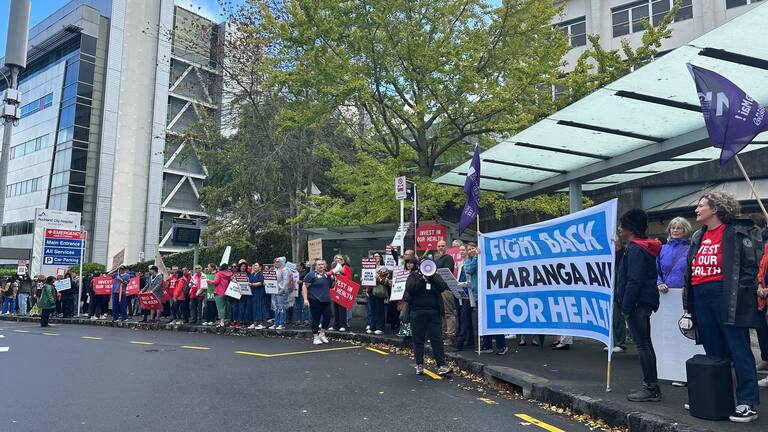More than 5,000 senior hospital doctors and specialists across New Zealand have taken part in a rare 24-hour strike — not for higher pay alone, but for the survival of our public health system.
The strike, which ends at 11:59pm tonight, has already forced Health New Zealand (Te Whatu Ora) to postpone around 4,300 planned surgeries and specialist appointments — a decision doctors say weighs heavily on them, but one they say was necessary.
Why Are They Striking?
Doctors say they’re exhausted, understaffed, and feeling undervalued — not just in spirit, but on their payslips too. Hospitals are battling to recruit and retain senior staff, and many are being lured overseas with salaries two to four times higher in Australia.
“We love what we do, and we care about our patients,” said Dr Katie Ben, president of the doctors’ union (ASMS). “But we can’t keep delivering care if we don’t have enough doctors left to do the work.”
One Doctor, Two Emergencies — No Backup
At Nelson Hospital, Dr Ben is often the only anaesthetist on call. “If I’m in theatre with a trauma patient and a woman in labour needs emergency help — what do I do?” she said. “There’s no one else to call. It’s a heartbreaking, unsafe situation.”
How Bad Is the Staffing Shortage?
In Tairāwhiti (Gisborne), nearly half of all senior doctor positions are vacant. Some departments are running on half the staff they need, and there’s no child psychiatrist for the region’s tamariki.
Even basic services like ear, nose and throat (ENT) surgeries are delayed up to a year — meaning some children are going 12 months without being able to hear properly.

It’s Not Just About Pay
“I’m not doing this for a raise,” said Dr Carol Chan, a paediatrician in Gisborne. “I’m doing this because we can’t keep doctors here, and we’re losing the ones we’ve got. That puts kids at risk. We’re just not coping.”
Patients Feel It Too
Mark, a builder from Coromandel, has had surgery cancelled twice in six months. One visit saw him spend 12 hours in an overcrowded emergency department, surrounded by elderly patients waiting for beds into the early hours of the morning.
“Even with all this, I support the doctors,” he said. “They’re doing their best in a system that’s failing them — and us.”
What’s the Government Offering?
Health NZ says it offered salary increases of $8,000 to $30,000, plus a $25,000 bonus to work in hard-to-staff regions. But doctors say that’s not enough to fix the deeper issue — a broken system that’s overly reliant on expensive temps (locums) instead of investing in permanent staff.
So, What’s Next?
Health Minister Simeon Brown criticized the doctors’ union for not putting the offer to a vote. But the union insists the offer doesn’t go far enough to fix dangerous staff shortages or stem the flow of doctors leaving.
This isn’t just a pay dispute. It’s about making sure New Zealanders can access timely, safe, quality healthcare — and that the people who deliver it are supported enough to stay.



